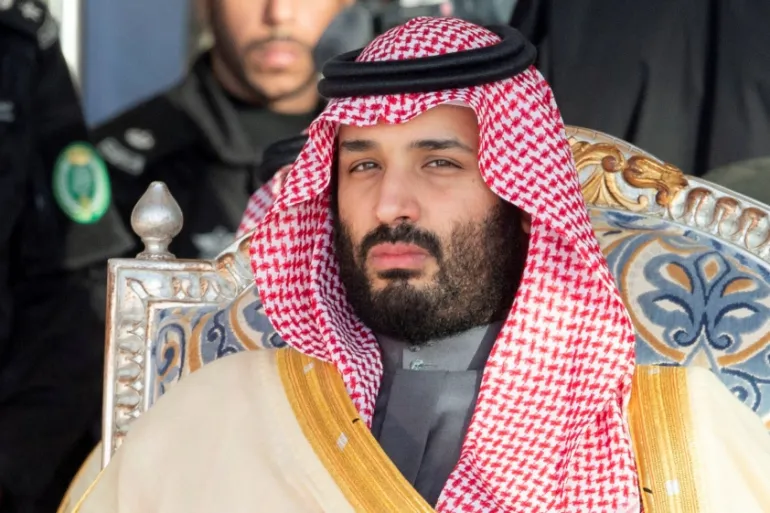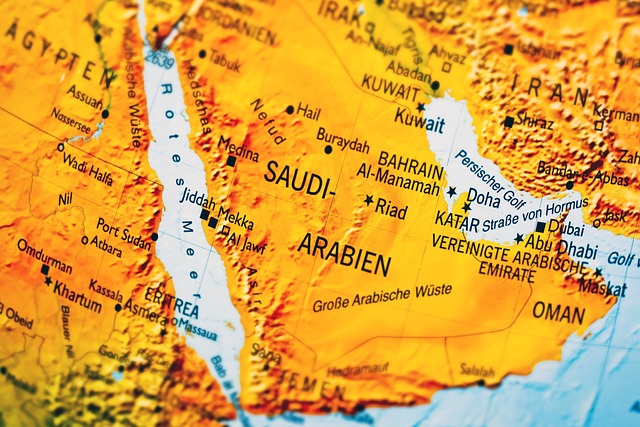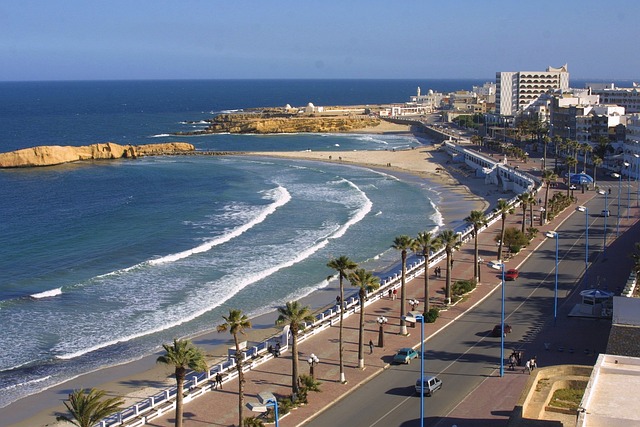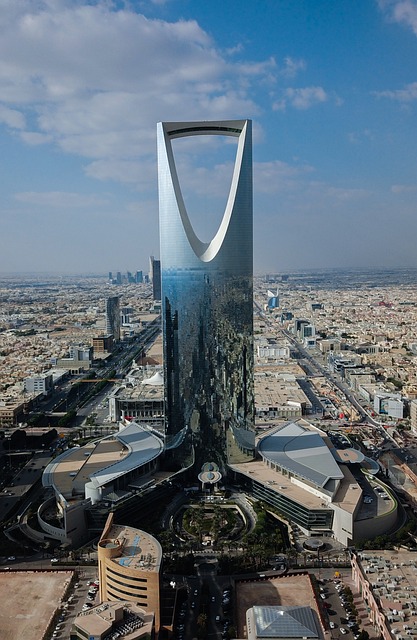Saudi Anti-Corruption Campaign (2017–2019): Extraordinary Measure to Achieve the Objective

The 2017–2019 Saudi Anti-Corruption Campaign, spearheaded by Crown Prince Mohammed bin Salman (MBS), resulted in a sweeping crackdown on corruption. Through settlements with numerous senior princes, ministers, and top businessmen, the campaign successfully recovered over $106 billion. This remarkable achievement stands as a unique and phenomenal example of swiftly reclaiming such a substantial sum within a relatively short timeframe.

Saudi Anti-Corruption Campaign: Corruption in Saudi Arabia is Defined as Follows:
- Violation of Rules and Controls: Corruption occurs when an individual violates any rules and controls imposed by law.
- Undermining Public Interest: It involves conduct that undermines public interest by betraying or disregarding it, where private interest prevails over public interest.
- Abuse of Public Office: Any abuse of public office with the purpose of obtaining personal gains is also considered a form of corruption1.
Additionally, Saudi Arabia has implemented the Anti-Bribery Law, which primarily focuses on “public servants” and certain positions in the private sector treated as public servants. This law aims to combat bribery and corruption within the country2.
Saudi Arabia investigates and prosecutes corruption cases through several mechanisms:
- Inspection Raids and Arrests:
- The Oversight and Anti-Corruption Authority (Nazaha) conducts inspection raids to uncover corrupt practices.
- Officials accused of corruption are arrested, and investigations are initiated1.
- Charges and Accusations:
- The implicated officials face charges such as bribery, abuse of power, forgery, and money laundering.
- These charges apply to individuals from various ministries and agencies1.
- Prosecution and Accountability:
- The Control and Investigation Board has the authority to prosecute bribery cases before the Board of Grievances.
- The Public Prosecution investigates all criminal activity, ensuring accountability2.
In summary, Saudi Arabia takes a multi-pronged approach to combat corruption, emphasizing transparency, oversight, and legal proceedings.
Transparency in Corruption Investigations and Trials:
- Secrecy Surrounding Detentions:
- Detainees during the anti-corruption campaign were held in luxury hotels, such as the Ritz-Carlton in Riyadh.
- Details about specific charges and evidence were often not publicly disclosed, leading to speculation and concerns about due process.
- Lack of Independent Oversight:
- The Oversight and Anti-Corruption Authority (Nazaha) oversees investigations, but its independence has been questioned.
- Independent monitoring bodies play a crucial role in ensuring transparency and accountability.
- Media Restrictions and Censorship:
- State-controlled media outlets emphasize the government’s efforts but avoid critical reporting.
- Journalists face restrictions, impacting transparency and public awareness.
In summary, while progress has been made, challenges persist in achieving full transparency in corruption-related proceedings.
Public Opinion :
-
- Mixed Reactions: Some citizens supported the crackdown, viewing it as a necessary step to combat corruption and ensure accountability.
- Concerns: Others expressed concerns about due process, transparency, and the lack of detailed information about specific cases.
- Fear of Reprisals: Fear of reprisals led to self-censorship among journalists and activists, limiting open discussion.
- International Perception:
- Media Scrutiny: International media outlets closely monitored the developments, highlighting both the scale of the campaign and the lack of transparency.
- Human Rights Organizations: Human rights organizations raised concerns about detainees’ rights and the need for independent oversight.
- Investor Confidence: Foreign investors considered the situation when assessing business opportunities in Saudi Arabia.
In summary, while some applauded the anti-corruption efforts, others emphasized the importance of transparency and due process.
Saudi Anti-Corruption Campaign, Several High-Profile Figures Were Involved, and the Outcomes Varied:
The Key Aspects of the Legal System in Saudi Arabia in Handling Corruption Cases, from Initial Investigations to Final Outcomes. :
- Oversight and Anti-Corruption Authority (Nazaha):
- Nazaha is an independent body established by Royal Decree in 2011.
- It monitors and investigates all forms of financial and administrative corruption.
- Nazaha has jurisdiction over Saudi governmental officials, entities, and private companies where the government owns at least 25% of shares.
- It receives corruption-related allegations, conducts investigations, and refers cases to criminal courts1.
- Anti-Bribery Law:
- The primary anti-corruption provisions in Saudi Arabia are provided by the Anti-Bribery Law, issued by Royal Decree in 1996 (most recently amended in 2021).
- This law primarily focuses on “public servants” and certain positions in the private sector treated as public servants.
- It addresses bribery, abuse of power, forgery, and money laundering1.
- Investigations and Raids:
- The Oversight and Anti-Corruption Authority conducts inspection raids to uncover corrupt practices.
- Investigations involve multiple ministries and agencies.
- The goal is to identify and prosecute anyone misappropriating public funds or exploiting their position for personal gain2.
- Prosecution and Accountability:
- The Control and Investigation Board has the power to prosecute bribery cases before the Board of Grievances (an independent administrative judicial committee).
- The Public Prosecution investigates all criminal activity related to corruption3.
- Recoveries and Settlements:
- The anti-corruption campaign has led to high-profile settlements, recovering significant amounts for the public treasury.
- In the past three years, approximately 247 billion riyals (roughly 20% of non-oil revenues) were recovered, along with non-cash assets transferred to the Ministry of Finance1.
- Zero Tolerance Policy:
- Saudi Arabia emphasizes a “zero tolerance” approach to financial and administrative corruption.
- Accountability extends even after officials leave their positions2.
In summary, the legal system in Saudi Arabia actively investigates, prosecutes, and aims to hold accountable those involved in corruption, ensuring transparency and adherence to anti-corruption laws.
Saudi judicial Role during Trials Related to Corruption charges
- Investigation and Evidence Review:
- The judiciary reviews evidence presented by investigative bodies, such as the Oversight and Anti-Corruption Authority (Nazaha).
- It ensures that due process is followed, including proper collection and handling of evidence.
- Legal Proceedings and Court Hearings:
- Corruption cases are brought before the courts, specifically the Board of Grievances (an independent administrative judicial committee).
- Judges preside over hearings, evaluate evidence, and assess the validity of charges.
- They ensure that defendants’ rights are protected and that legal procedures are followed.
- Verdicts and Sentencing:
- The judiciary delivers verdicts based on the evidence and legal arguments presented.
- If a defendant is found guilty, the court determines an appropriate sentence, which may include fines, imprisonment, or other penalties.
- Appeals and Judicial Review:
- Defendants have the right to appeal court decisions.
- The judiciary reviews appeals to ensure fairness and adherence to the law.
In summary, the judiciary ensures that corruption trials are conducted fairly, transparently, and under legal principles.
In the Saudi Anti-Corruption Campaign, Several High-Profile Figures Were Involved, and the Outcomes Varied:
- Settlements and Pardons:
- Most of those detained agreed to settlements with the authorities in exchange for a pardon.
- These settlements included financial payments, property transfers, and other assets1.
- Prominent figures, including princes, ministers, and businessmen, were part of this process.
- Released Individuals:
- Continued Efforts:
In summary, the campaign led to settlements, pardons, and the release of high-profile detainees.
The Determination of Settlement Amounts for High-Profile Figures During the Saudi Anti-Corruption Campaign Involved Negotiations and Assessments. The Key Factors Considered:
- Allegations and Evidence:
- The severity of allegations against each individual played a role.
- Evidence related to corruption, bribery, and misuse of public office was evaluated.
- Wealth and Assets:
- The accused individuals’ financial status and assets were considered.
- Settlements aimed to recover ill-gotten gains, including cash, property, and other holdings.
- Negotiations and Agreements:
- Negotiations took place between the government and the detainees or their representatives.
- Settlements were reached through financial agreements.
- Government Priorities:
- The government’s broader goals, such as combating corruption and restoring investor confidence, influenced the process.
In summary, settlement amounts were determined based on a combination of legal considerations, financial assessments, and negotiation outcomes.
During Saudi Arabia’s anti-corruption campaign, some high-profile figures chose not to settle and faced trials instead. Among the 381 people summoned or questioned, eight individuals refused to settle and were accused of corruption. These cases proceeded to legal proceedings, emphasizing due process and accountability1.
During the Saudi Anti-Corruption Campaign, High-Profile Figures Who Refused to Settle Faced Trials. Here are the Outcomes:
- Refused Settlements:
- Number: Fifty-six individuals refused to settle.
- Reasons: Some faced other pending criminal cases, while others wanted the investigation process to continue.
- Status: They were transferred from the Ritz-Carlton to prison1.
- Prosecution:
- Eight individuals who declined settlements were accused of corruption.
- Their cases proceeded to legal proceedings1.
In summary, those who refused settlements faced trials, emphasizing due process and accountability.
If you enjoyed this article, please like and share it with your friends, and don’t forget to subscribe for more great content!
Saudi Anti-Corruption Campaign (2017–2019): Extraordinary Measure to Achieve the Objective

